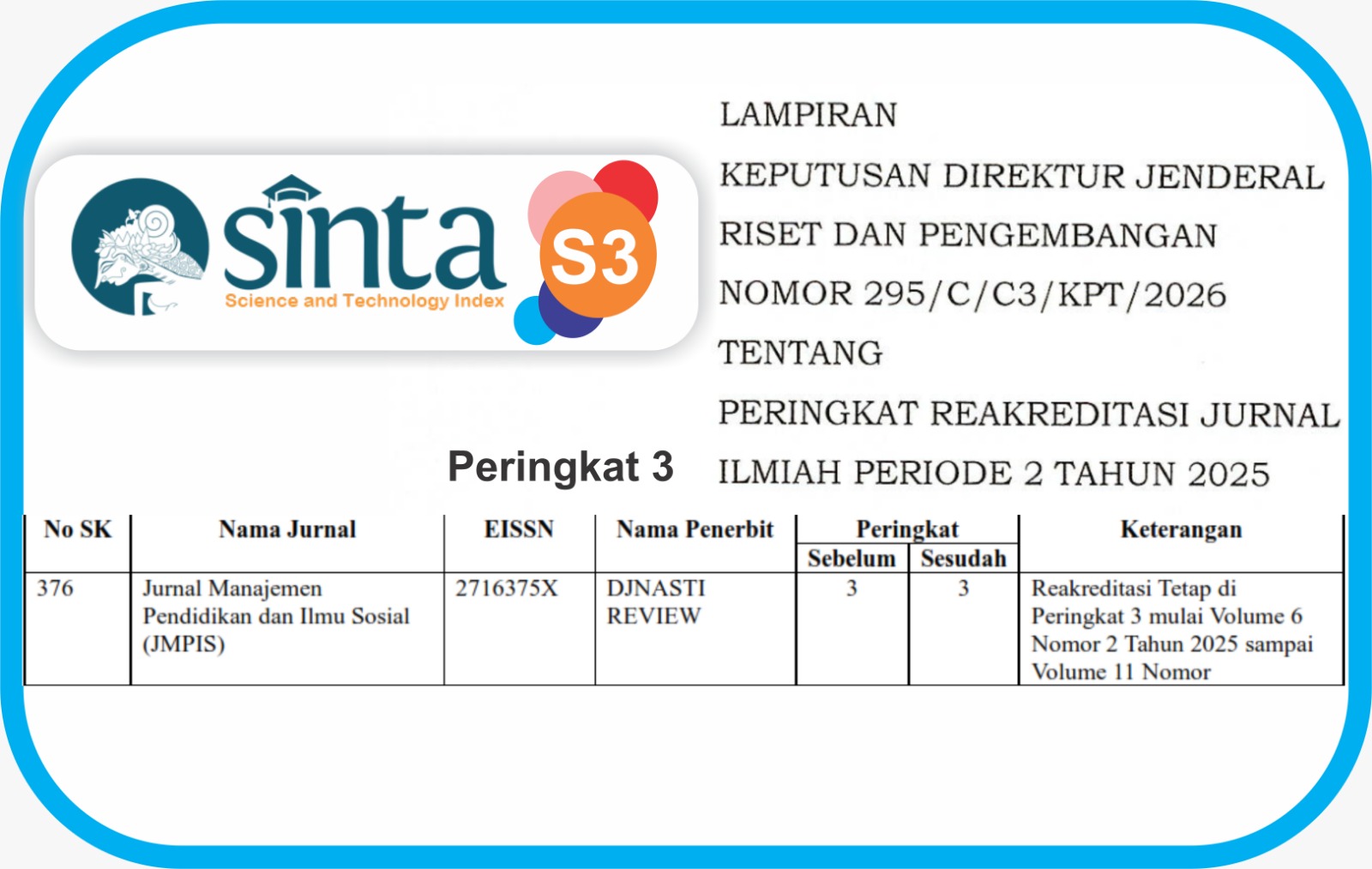Tren Dakwah Digital : Membongkar Problem Media Sosial di Kalangan Da'i di Desa Silau Padang Kecamatan Sipispis Kabupaten Serdang Bedagai
DOI:
https://doi.org/10.38035/jmpis.v5i5.2331Keywords:
Digital Da'wah, Social Media Problems, Da'iAbstract
Fake news frequently spreads through comments and content shared by social media users, resulting in disinformation for the general public. These hoaxes not only concern general topics, but they also frequently address sensitive theological issues, which can cause misunderstanding and even conflict among believers. The purpose of this study is to identify and assess the challenges that preachers confront when using social media for da'wah in Silau Padang Village, Sipispis District, Serdang Bedagai Regency. The research approach employed is qualitative research, which describes facts through a series of phrases. This study employed a descriptive strategy. The descriptive method uses data from interviews with preachers in Silau Padang Village, Sipispis District, Serdang Bedagai Regency, as well. as data from books, journals, and other scholarly publications. The findings demonstrate that the trend of digital da'wah causes a variety of issues for da'i in Silau Padang Village. Some of them include rejection, disdain, and slander, which are frequently seen on social media platforms. Furthermore, the rapid advancement of technology allows for the rapid distribution of bad information and slander, which contradicts Islamic teachings that ban spreading other people's humiliation. Nonetheless, the da'i recognize that technology has enormous potential for spreading beneficial and constructive da'wah messages. To overcome these issues, preachers in Silau Padang Village employ a variety of tactics. They become innovative in observing the evolution of social media trends, mastering effective communication tactics, and responding to queries and comments from the community. They also use technological aspects such as live streaming and making da'wah content on prominent social media platforms. Based on the findings of this study, it can be stated that digital da'wah not only provides benefits, but also presents a number of problems that must be overcome. Understanding the difficulties and employing the appropriate tactics can help da'wah boost the success of their digital da'wah while also maintaining the purity of the da'wah message in the ever-changing social media environment.
References
Anggit Pamungkas, U. H. (2023). Tantangan dakwah melalui media sosial facebook di era media baru. ARKANA, Jurnal Komunikasi Dan Media, 02, 146–158. https://ojs.unsiq.ac.id/index.php/arkana
Faridhatun Nikmah. (2019). Digitalisasi Dan Tantangan Dakwah Di Era Milenial. Mu??arah: Jurnal Kajian Islam Kontemporer, 1(1), 44–52.
Habibi M. (2023). Optimalisasi Dakwah Melalui Media sosial facebook Di Era Milenial. Al-Hikmah: Jurnal Dakwah, 12(1), 101–116.
Hamdi, S., Nasrullah, A., & Awalia, H. (2020). PENYULUHAN MODERASI BERAGAMA PADA KALANGAN PEMUDA NAHDLATUL WATHAN DI DESA DARUL HIJRAH ANJANI LOMBOK TIMUR. Prosiding PEPADU, 2, 2–3.
Jafar, I., & Amrullah, M. N. (2018). Bentuk-Bentuk Pesan Dakwah dalam Kajian Al-Qur’an. Jurnal Komunikasi Islam, 8(1), 41–66. https://doi.org/10.15642/jki.2018.8.1.41-66
Pratopo, W. M., & Kusajibrata, N. (2018). Konvergensi di Ruang Redaksi pada Kelompok Media Tempo. Jurnal Studi Komunikasi (Indonesian Journal of Communications Studies), 2(1), 126–142. https://doi.org/10.25139/jsk.v2i1.510
Puspito, I. D., & Azhima, N. (2024). Dakwah Digital Untuk Generasi Millenial. Tabayyun, 4(2), 1–10. https://doi.org/10.61519/tby.v4i2.50
Ritonga, M. (2019). Komunikasi Dakwah Zaman Milenial. Jurnal Komunikasi Islam Dan Kehumasan, 3(1), 60–77.
Suwoto, N. S., & Zen, M. (2023). Optimizing Da’wah Management Through Social Media in the Millennial Era at BMT Bina Ummah. Jurnal Kajian Manajemen Dakwah, 5(1), 31–40. https://doi.org/10.35905/jkmd.v5i1.5574
Trilaksono, B. H., Prasetyawan, W., Amirudin, A., & Rizky, K. (2021). Media Retorika Dakwah Pada Era Milenial. Virtu: Jurnal Kajian Komunikasi, Budaya Dan Islam, 1(1), 1–16. https://doi.org/10.15408/virtu.v1i1.18073
Downloads
Published
How to Cite
Issue
Section
License
Copyright (c) 2024 Abror Ghufron, Anang Anas Azhar

This work is licensed under a Creative Commons Attribution 4.0 International License.
Hak cipta :
Penulis yang mempublikasikan manuskripnya di jurnal ini menyetujui ketentuan berikut:
- Hak cipta pada setiap artikel adalah milik penulis.
- Penulis mengakui bahwa Jurnal Manajemen Pendidikan dan Ilmu Sosial (JMPIS) berhak menjadi yang pertama menerbitkan dengan lisensi Creative Commons Attribution 4.0 International (Attribution 4.0 International CC BY 4.0) .
- Penulis dapat mengirimkan artikel secara terpisah, mengatur distribusi non-eksklusif manuskrip yang telah diterbitkan dalam jurnal ini ke versi lain (misalnya, dikirim ke repositori institusi penulis, publikasi ke dalam buku, dll.), dengan mengakui bahwa manuskrip telah diterbitkan pertama kali di Jurnal Manajemen Pendidikan dan Ilmu Sosial (JMPIS).











































































